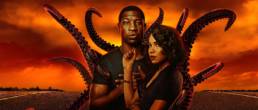
HBO have truly outdone themselves this autumn. There are several shows I’m already raving about, of which some I will cover in heartfelt reviews over the next few weeks, but one has managed to stand out from the very first episode: ‘Lovecraft Country’ (2020). I waited until episode five so as not to get ahead of myself and fall for the good-for-the-first-three-episodes-only trick. The gods of television have been kind, however, so 2020 isn’t entirely in the gutter.
I’m a huge fan of genre storytelling used to explore the unpleasant parts of a nation’s history. Damon Lindelof did a splendiferous job of it with ‘Watchmen’ (2019), which recently garnered a record number of Primetime Emmy nominations—twenty-six! There is simply something about weaving elements of uncomfortable truth into a series otherwise designed to thrill people. It’s the cold shower that no one asked for, yet everyone welcomes at the end. In that sense, Misha Green’s ‘Lovecraft Country’ is an astonishing work of televised art.
Before I dig into what makes me love this show so much, I think a small disclaimer is required for those unaware of the series’ source material. While its title and genre melange bring up plenty of Lovecraftian references, the show doesn’t have much of the master of horror’s actual writings at its foundation. ‘Lovecraft Country’ is based on the eponymous book by Matt Ruff and can be considered an homage to H.P. Lovecraft, at best, as a dark fantasy experiment aiming to combine the depiction of racism in America with spine-tingling fiction and a handful of borrowed shoggoths. Critically acclaimed, the book was bound to reach the screen eventually, considering its multi-layered offer of magic, human nature, and blood-pumping frights.
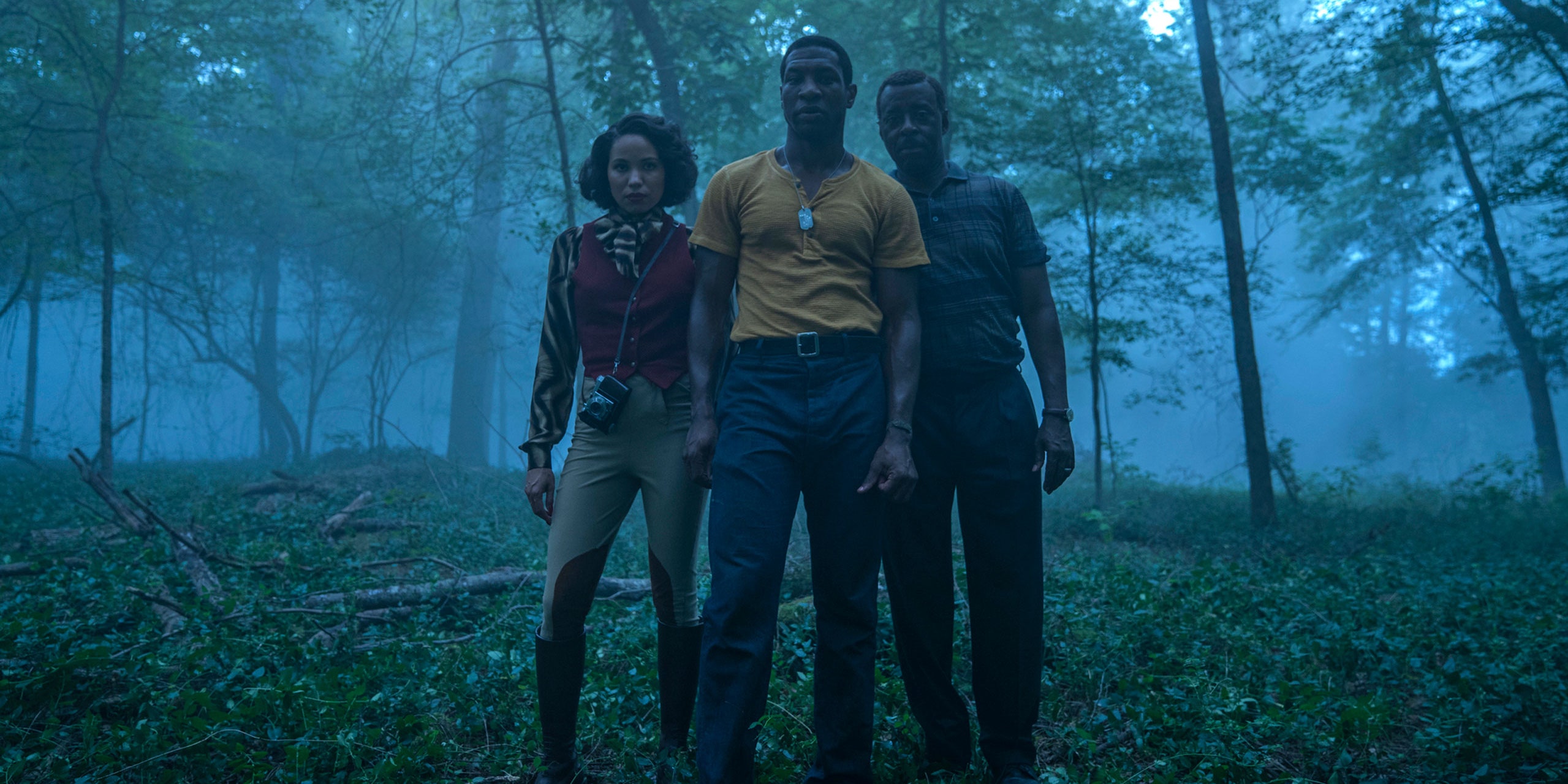 ‘LOVECRAFT COUNTRY’ (2020), ©HBO/HOME BOX OFFICE
‘LOVECRAFT COUNTRY’ (2020), ©HBO/HOME BOX OFFICE
There were many ways in which the show’s narrative and overall performance could have gone awry. Its success might have something to do with Misha Green’s decision to collaborate with Jordan Peele and J.J. Abrams on this project. The former has already made an indelible mark with deliciously frightful works such as ‘Get Out’ (2017) and ‘Us’ (2019), and the latter is a household name in everything sci-fi and utterly fantastic, best known for ‘Star Trek’ (2009), ‘Super 8’ (2011), and ‘Lost’ (2004-2010), among others. ‘Lovecraft Country’ therefore got off to a formidable start.
The story follows Atticus Turner and his closest friends and family as they grapple with the discovery of magic and occult brotherhoods in the midst of Jim Crow America. From the very beginning, we’re treated to remarkably strong and three-dimensional characters faced with insanely difficult challenges—and that’s before the monsters even show up. What I appreciate most is the apparent irregularity in the narrative thread: if episodes 1 to 2 gave us a thorough introduction into the Sons of Adam lodge and Atticus’s connection to them, for example, episode 3 focuses mostly on Leti and the haunted Victorian mansion she buys on Chicago’s North Side, while episode 4 pulls the story back on the Sons of Adam and Atticus’s determination to learn magic so that he might use it to protect those he loves, and episode 5 takes us closer to Ruby as she gets to experience life in the skin of a white woman. There are so many shades of weird and spooky, repeated viewings are a must!
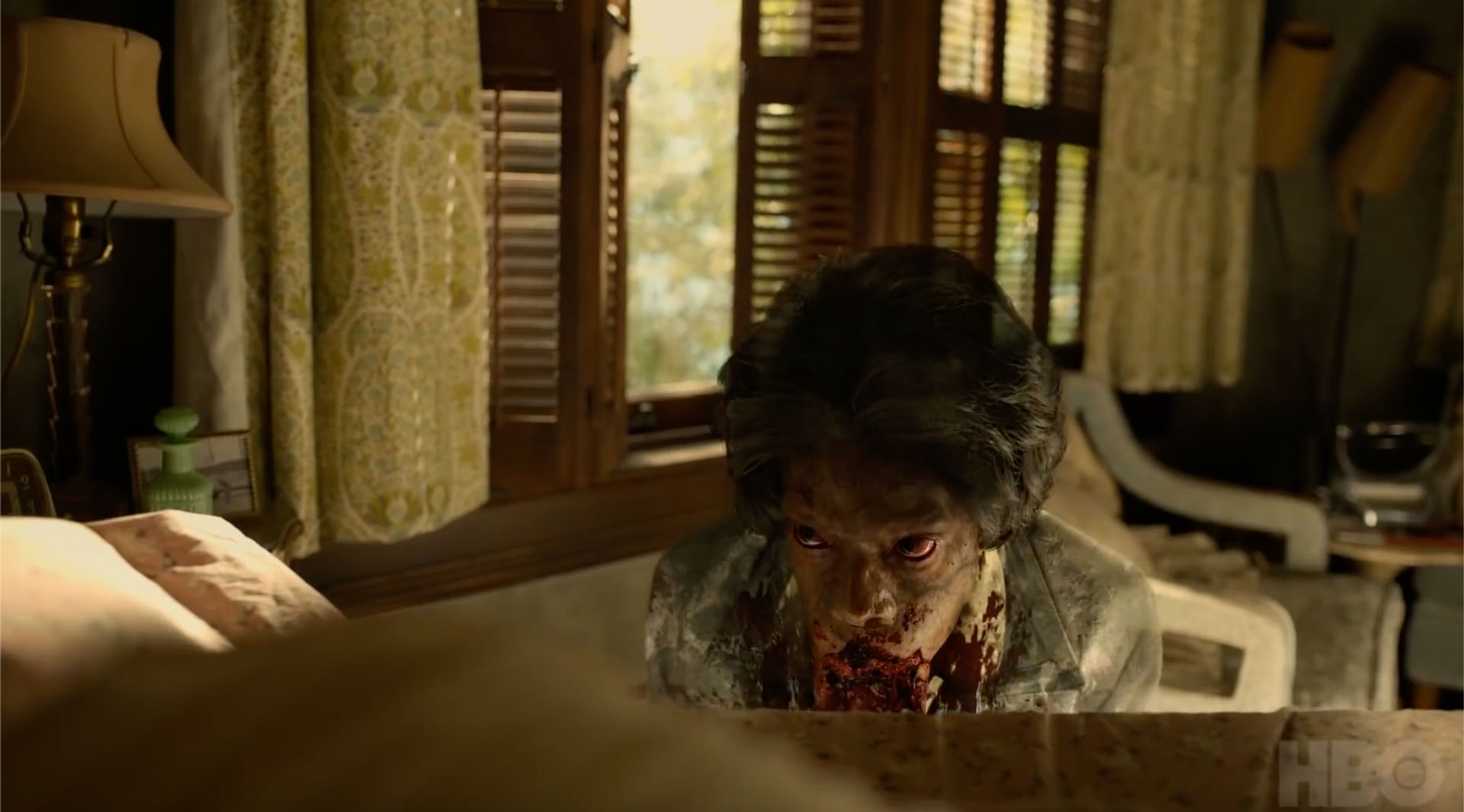 ‘LOVECRAFT COUNTRY’ (2020), ©HBO/HOME BOX OFFICE
‘LOVECRAFT COUNTRY’ (2020), ©HBO/HOME BOX OFFICE
Where the writing is concerned, multiple influences can be identified in the series’ screenwriting. H.P. Lovecraft aside, I’m reminded of Alan Ball’s ‘True Blood’ (2008-2014), given the infusion of sex, mysticism, blood, and oh, so much gore. The story is solid, with good source material and excellent character development—I love each and every one of them intensely. Atticus brought ghosts of the Korean War with him back to America, distraught by the realization that he, too, is capable of inflicting harm and pain and death upon others. Worst of all, he’s more like his father than he’d thought, and that becomes his shadow. Montrose is a complex man, to say the least, struggling with a murky past, his own sexuality, and his lethal, desperate desire to keep magic out of his son’s reach, the very son he beat the living daylights out of as a child.
Leti is young, the element of arousing innocence that finds unexpected courage in the face of mortal danger. She’s the balancing force against Atticus’s rage, and the superb portrait of a strong black woman in defiance of America’s white dominance of the Jim Crow era. Ruby is the older sister, a spicy combination of resentment and deep emotional hurt—she has seen and endured plenty more than her lighter-skinned sister, and she has stories of her own to tell. Even Christina Braithwaite and William are fascinating forces of disruption, while Hippolyta and George Freeman bring a sprinkle of wisdom and maturity to the boiling pot, despite the tragic end to their decades-long love story.
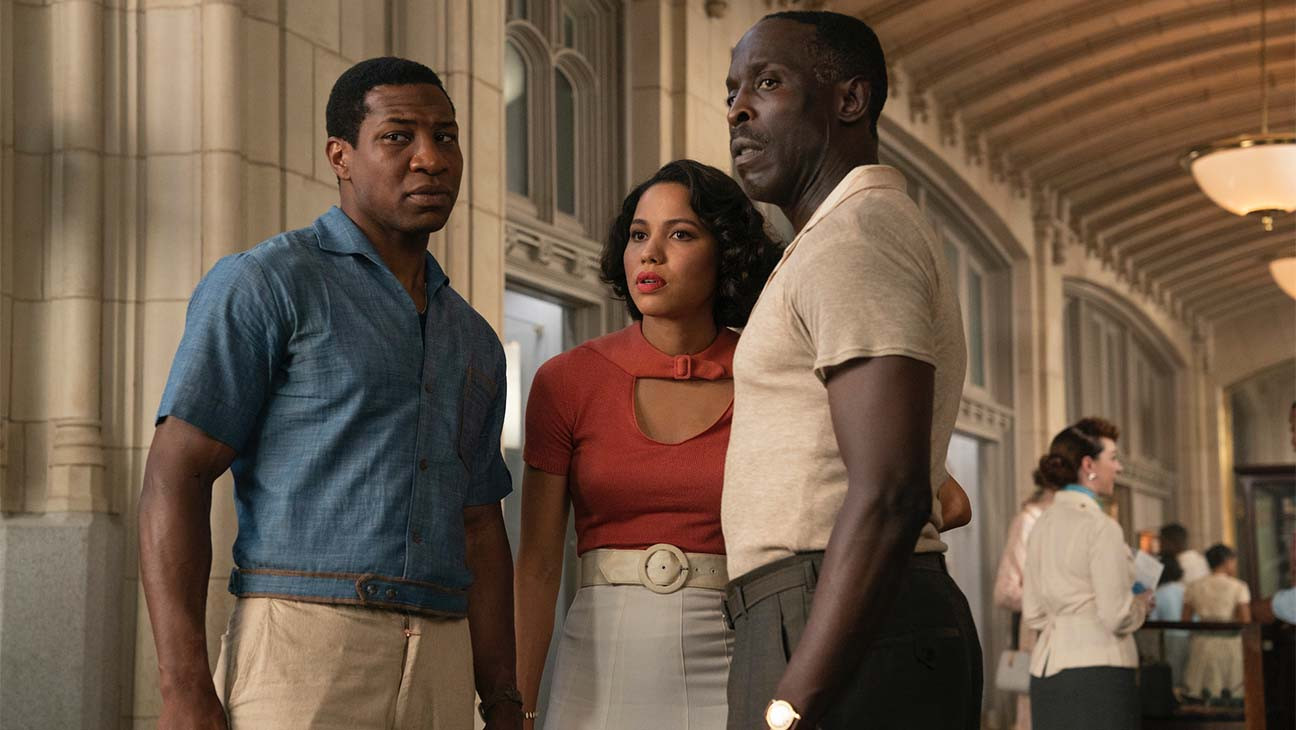 ‘LOVECRAFT COUNTRY’ (2020), ©HBO/HOME BOX OFFICE
‘LOVECRAFT COUNTRY’ (2020), ©HBO/HOME BOX OFFICE
The performances are absolutely stellar from top to bottom. Jonathan Majors as Atticus Freeman is beyond compelling. Better known for ‘The Last Black Man in San Francisco’ (2019), Mr Majors’s star is rising fast, and it is easy to see why as he breathes his whole life into Atticus. Jurnee Smollett takes everyone’s breath away as Leti Lewis, bold and perhaps a little reckless but eager to live a full life and do the right thing. Yes, the world is full of creepy and awful things—particularly people, though Leti pushes forward and does whatever is humanly possible to save herself and to help others.
In a spectacular contrast, Michael Kenneth Williams of ‘The Wire’ (2002-2008) and ‘Boardwalk Empire’ (2010-2014) gives Montrose a plethora of sides for the viewer to study. He’s the former abuser, the looming father figure that Atticus tried his best to step away from yet ended up being a lot alike. He’s the man learning to love another man after years of hiding his true self in a society that doesn’t look kindly on LGBTQ people. He’s the saboteur who knows more than he is telling us and will even kill to keep magic out of his son’s reach—not because he doesn’t want Atticus to have some kind of advantage against the white oppressors but because he knows… he has seen what such power will do. His apparent antagonism makes sense once you understand the trauma he survived prior to his rescue.
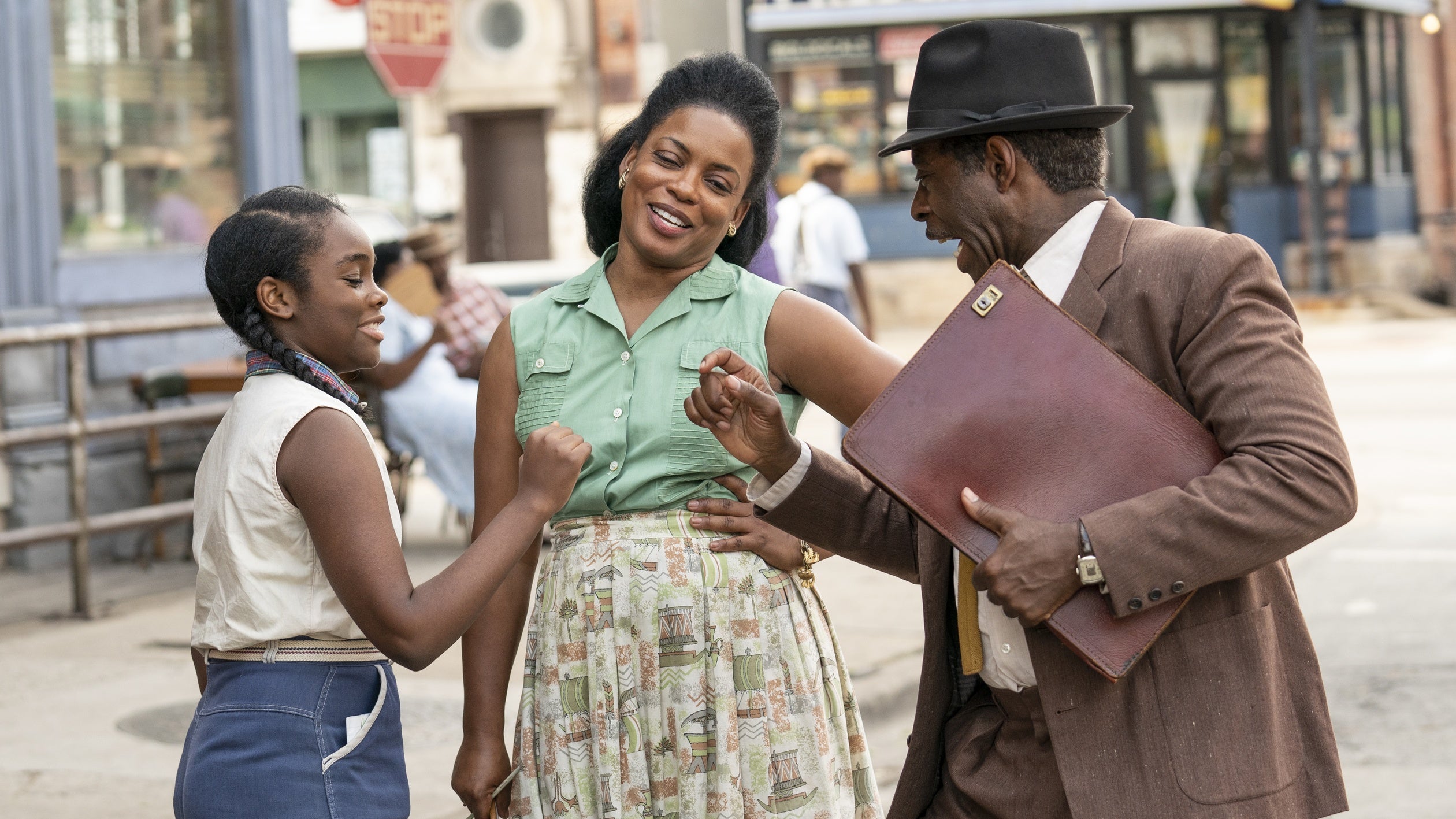 ‘LOVECRAFT COUNTRY’ (2020), ©HBO/HOME BOX OFFICE
‘LOVECRAFT COUNTRY’ (2020), ©HBO/HOME BOX OFFICE
Aunjanue Ellis, better known for her role as Madeleine Hightower in ‘The Mentalist’ (2008-2015) and as Sharonne Salaam in Ava Duvernay’s ‘When They See Us’ (2019), delivers a rendition in ‘Lovecraft Country’ like nothing I’ve seen before. Her Hippolyta loves Courtney B. Vance’s George Freeman deeply, but she is forced to adjust to life without him practically overnight. She tries to understand what happened. And while Atticus, Montrose, and Leti do their best to protect her from the ugly truth, Hippolyta charges head-first at the problem. The truth is more important, regardless of its aesthetic.
Wunmi Mosaku is Ruby Baptiste. The Nigerian actress has several impressive credits to her name—among them ‘Fantastic Beasts and Where to Find Them’ (2016) and ‘Philomena’ (2013), but it’s in ‘Lovecraft Country’ that one sees the full spectrum of what she has to offer: impeccable talent and a smouldering gaze that will burn a whole set down. Ruby is bursting with musical talent and the desire for a better life, for dignity and equality in a society that denies her purely because of her skin colour. Magic becomes a double-edged blade for Ruby. It takes her a while to realise that magic, unlike humans, does not see colour. It only gives its wielder the opportunity to do whatever they want, as Miss Braithwaite might say.
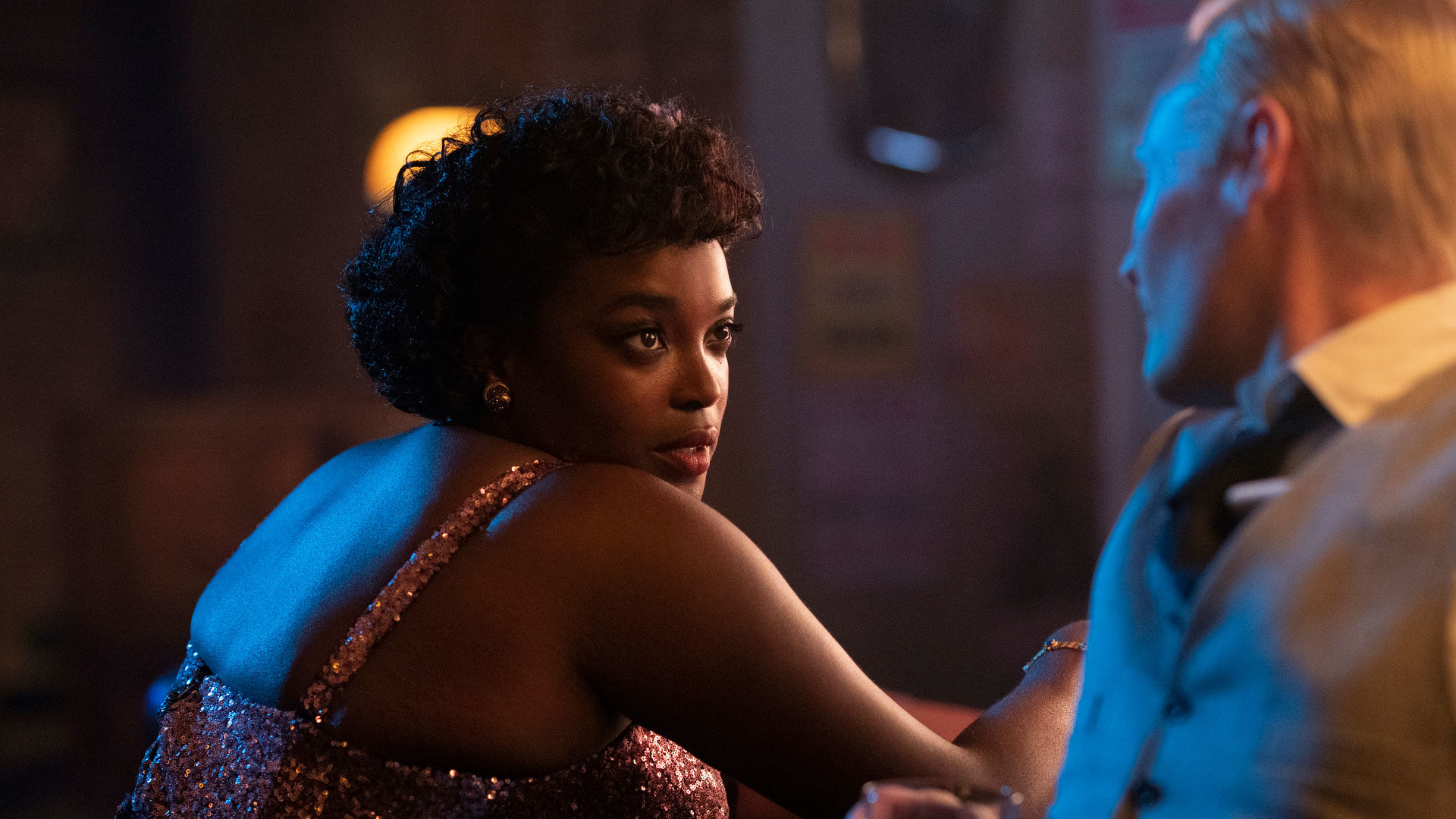 ‘LOVECRAFT COUNTRY’ (2020), ©HBO/HOME BOX OFFICE
‘LOVECRAFT COUNTRY’ (2020), ©HBO/HOME BOX OFFICE
‘Lovecraft Country’ is not Misha Green’s first foray as a showrunner. She brings plenty of experience to the table with ‘Helix’ (2014) and ‘Underground’ (2016-2017), along with an in-depth understanding of the source material and of the history of racial dynamics in the United States. One would need both to produce something so multifaceted and complex, so fascinating, so beautiful and horrifying at the same time.
Aside from its aforementioned Lovecraftian influences, the show is also a visual tribute to George Romero. It’s what horror filmmakers of the past century could only dream of. We have the constantly developing SFX technology and computer animation to thank for that. The mastery begins with the cinematographers in this case—namely, Robert McLachlan and Michael Watson. You’ll remember Mr McLachlan for his Emmy-nominated work on ‘Game of Thrones’ (2011-2019) and ‘Ray Donovan’ (2013-2020), and Mr Watson for ‘Underground’ and ‘Black Lightning’ (2018-2019), both capable of formidable imagery to accompany the equally exceptional production design, signed by Kalina Ivanov and Howard Cummings.
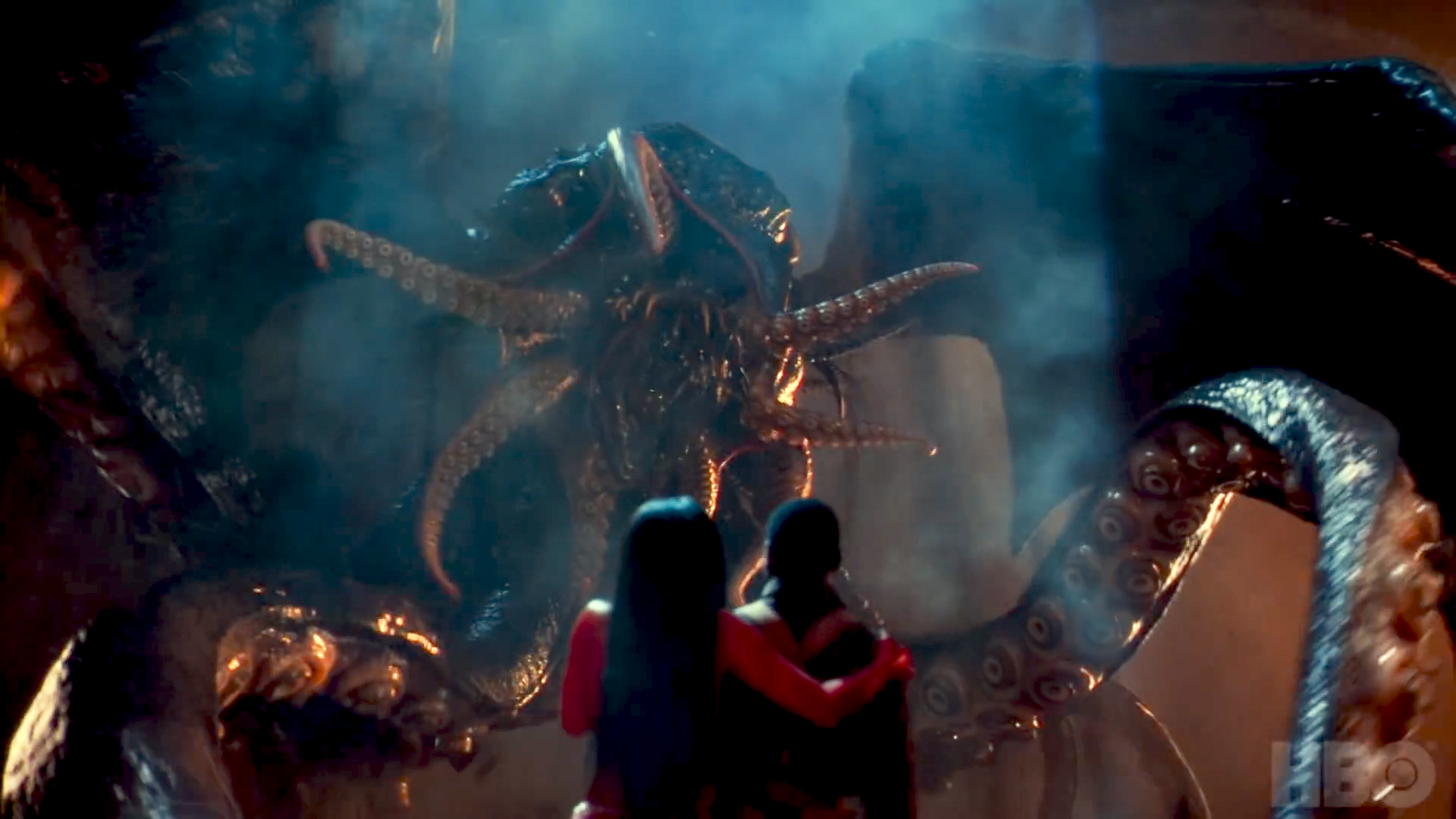 ‘LOVECRAFT COUNTRY’ (2020), ©HBO/HOME BOX OFFICE
‘LOVECRAFT COUNTRY’ (2020), ©HBO/HOME BOX OFFICE
Moving past the magnificent costume and set design and the production’s brilliant art direction, which when combined manage to easily submerge the viewer in 1950s Chicago, a tip of the hat is owed to the special effects—the result of Ms Green’s collaboration with Academy-Award-winning creative studio Framestore.
Truth be told, I’d envisioned the shoggoth monsters more along the lines of how H.P. Lovecraft had described them in ‘At the Mountains of Madness’: ‘Formless protoplasm able to mock and reflect all forms and organs and processes – viscous agglutinations of bubbling cells – rubbery fifteen-foot spheroids infinitely plastic and ductile’, but Framestore’s proposal in the ‘Sundown’ and ‘Whitey on the Moon’ episodes were just as frightening, if not worse.
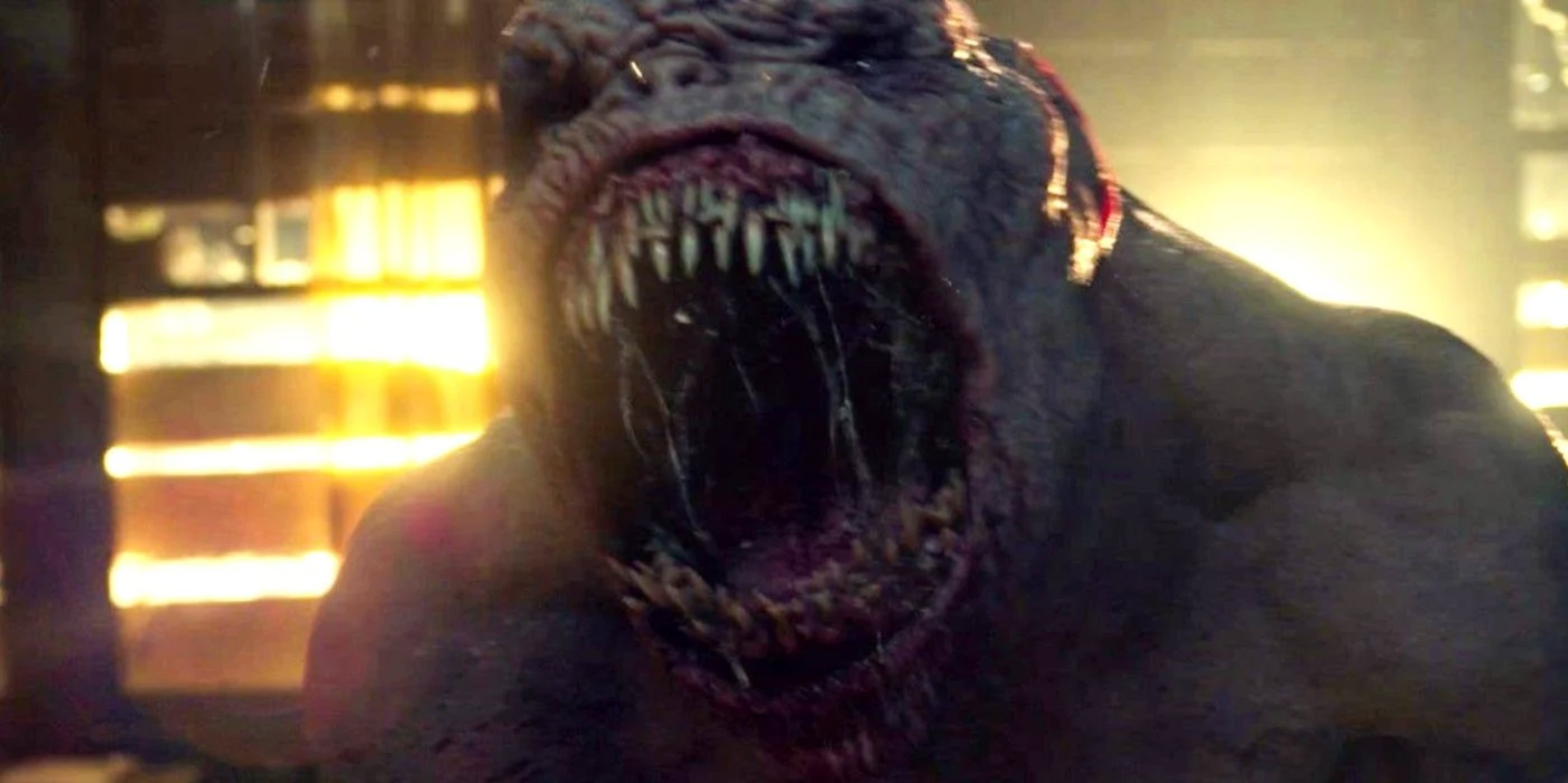 ‘LOVECRAFT COUNTRY’ (2020), ©HBO/HOME BOX OFFICE
‘LOVECRAFT COUNTRY’ (2020), ©HBO/HOME BOX OFFICE
‘Lovecraft Country’ is full of such moments where dread is mercilessly induced, and a rapid heart rate is expected. Ruby’s metamorphosis continues to haunt me even as I write this review. George Romero would be giggling with sheer joy at this point, for Misha Green manages to make the viewer’s stomach churn while forcing them to keep watching—this is just too good to miss any of it, even the gooey, bloody, slimy and gory parts, proving that beauty exists in horror, too. There’s no shortage of violence and limbs flying, either, but they only serve as minor plot devices.
The true horror of ‘Lovecraft Country’ comes not from the monsters and the dark magic that it loves to play with in each episode. It doesn’t come from the many secrets still left to uncover about the Sons of Adam, either. No, the true horror of ‘Lovecraft Country’ comes from mankind and the terrible things too many people are willing to do in their quest for absolute dominance over the rest of the world and over those they foolishly consider inferior. The true monsters aren’t the shoggoths.
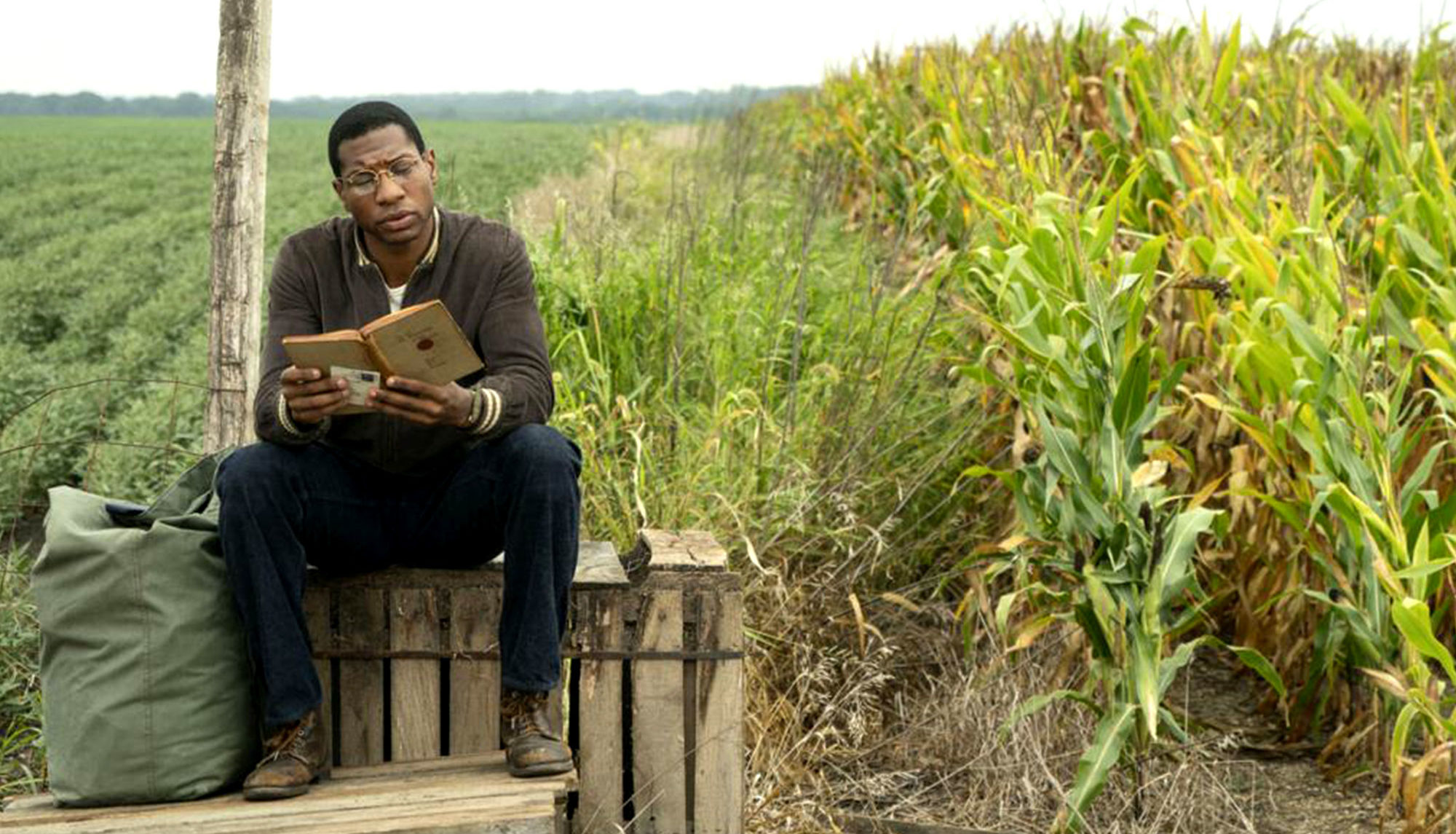 ‘LOVECRAFT COUNTRY’ (2020), ©HBO/HOME BOX OFFICE
‘LOVECRAFT COUNTRY’ (2020), ©HBO/HOME BOX OFFICE
The true monsters are those who perpetuate racism to this day. The near-deadly troubles that Atticus and his friends deal with are basically what one too many Black Americans continue to face today, albeit at different levels and in varying circumstances. In that sense, ‘Lovecraft Country’ is a heart-breaking, compelling study of Black Americans and their painful history. I’ve seen enough to eagerly see this season’s journey to the end.
Jules R. Simion
Jules is a writer, screenwriter, and lover of all things cinematic. She has spent most of her adult life crafting stories and watching films, both feature-length and shorts. Jules enjoys peeling away at the layers of each production, from screenplay to post-production, in order to reveal what truly makes the story work.
An Interview with Anna Drubich
Anna Drubich is a Russian-born composer of both concert and film music, and has studied across…
A Conversation with Adam Janota Bzowski
Adam Janota Bzowski is a London-based composer and sound designer who has been working in film and…
Interview: Rebekka Karijord on the Process of Scoring Songs of Earth
Songs of Earth is Margreth Olin’s critically acclaimed nature documentary which is both an intimate…
Don't miss out
Cinematic stories delivered straight to your inbox.
Ridiculously Effective PR & Marketing
Wolkh is a full-service creative agency specialising in PR, Marketing and Branding for Film, TV, Interactive Entertainment and Performing Arts.


